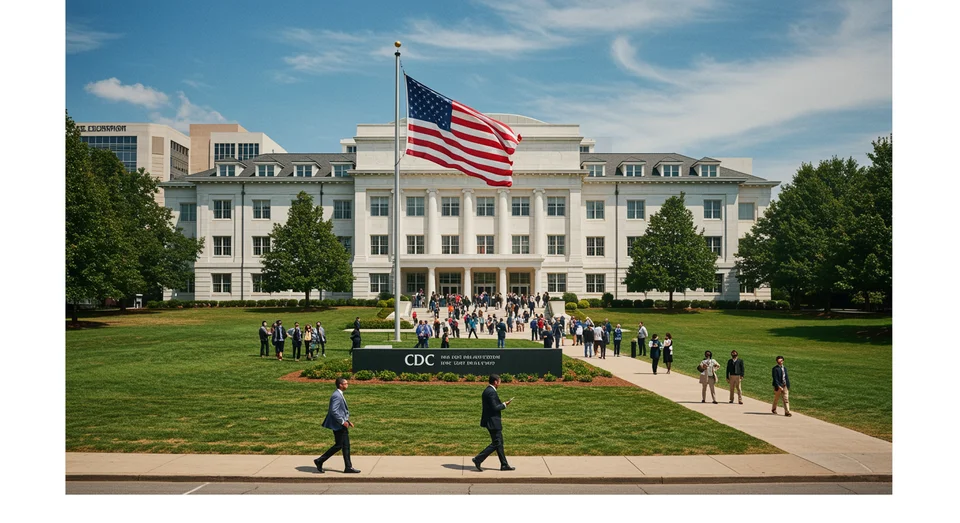Measles Outbreak Threatens U.S. Elimination Status Amid Criticism of Robert F. Kennedy Jr.s Leadership
36 views
The United States finds itself at a precarious crossroads as a measles outbreak sweeps across the nation, claiming the lives of two children and leaving over 600 others infected. Once celebrated for achieving measles elimination in the year 2000, the country now faces the grim possibility of losing that hard-won status due to sustained outbreaks spanning 21 states, with the most significant clusters reported in Texas and New Mexico. Amid this public health crisis, Robert F. Kennedy Jr., Secretary of Health and Human Services, has drawn sharp criticism for his handling of the situation, raising questions about the role of leadership in safeguarding public trust and health.
A Crisis of Leadership Amid a Public Health Emergency
Measles, a disease long relegated to the annals of medical history in the United States, has returned with alarming ferocity, exposing vulnerabilities in the nation’s public health infrastructure. The outbreak, which experts warn could persist long enough to strip the U.S. of its elimination status, has reignited fierce debates about vaccination policies and the dissemination of science-based health information. At the center of this storm is Robert F. Kennedy Jr., whose tenure as Health Secretary has been marred by controversy and mistrust.

Kennedy’s approach to the outbreak has been a study in contradiction. While he has acknowledged the importance of vaccination—a cornerstone of measles prevention—his endorsement has been overshadowed by his promotion of unproven treatments such as aerosolized budesonide and clarithromycin. Neither of these remedies has been scientifically validated as effective against measles, yet Kennedy’s public remarks have lent them undue credibility, muddling the message about the critical need for vaccination. This is compounded by his longstanding history of spreading vaccine misinformation, including the widely discredited claim that the MMR vaccine is linked to autism—a theory debunked by numerous studies and public health authorities.
Kennedy’s recent calls for a reexamination of vaccine safety data have further fueled skepticism among vaccine-hesitant communities, undermining efforts to curb the outbreak. Critics argue that his rhetoric, coupled with cuts to CDC resources under his leadership, has hampered the federal response to the crisis, leaving states to grapple with the outbreak largely on their own. The consequences are devastating: two preventable child deaths and hundreds of infections that could have been avoided through robust vaccination campaigns and clear, science-based public health messaging.
The Fragility of Public Trust in Science
The resurgence of measles in the United States serves as a stark reminder of the fragility of public trust in science and the devastating consequences of misinformation. Vaccines have long been heralded as one of the greatest achievements in modern medicine, eradicating diseases that once claimed countless lives. Yet, the erosion of confidence in vaccines, fueled by figures like Kennedy, threatens to unravel decades of progress.
Public health experts have been unequivocal in their warnings: sustained outbreaks lasting longer than 12 months could result in the loss of the country’s measles elimination status, a symbolic but significant marker of success in disease control. The implications extend far beyond measles itself, potentially emboldening anti-vaccine movements and jeopardizing efforts to combat other preventable diseases. The stakes could not be higher, yet Kennedy’s leadership has been characterized by a troubling departure from evidence-based practices.
The need for clear and consistent messaging has never been more urgent. Experts emphasize that vaccination is the most effective tool in preventing measles and averting further deaths. However, the mixed signals emanating from the highest levels of government have sown confusion and mistrust, making it increasingly difficult to persuade hesitant parents to vaccinate their children. The outbreak has laid bare the critical importance of science-based communication, not only in responding to immediate crises but also in preserving the integrity of public health initiatives.
A Call for Accountability and Action
As the measles outbreak continues to spread, the nation finds itself at a tipping point, grappling with the consequences of leadership that has prioritized ideology over evidence. Kennedy’s tenure as Health Secretary has sparked a broader conversation about the role of public officials in shaping health policy and the ethical responsibility to prioritize the well-being of citizens. His promotion of unproven treatments and history of vaccine misinformation have cast a long shadow over the federal response to the outbreak, raising questions about accountability and the need for reform.
The path forward is clear but fraught with challenges. Rebuilding public trust in vaccines and science-based health interventions will require a concerted effort from policymakers, healthcare providers, and community leaders. The CDC, despite facing resource constraints, must be empowered to lead the charge in combating the outbreak, armed with the tools and funding necessary to mount an effective response. Equally important is the role of education in dispelling myths about vaccines and reinforcing their safety and efficacy.
The measles outbreak in the United States is more than a public health crisis; it is a cautionary tale about the dangers of misinformation and the critical importance of evidence-based leadership. As the nation grapples with the consequences of this preventable tragedy, the need for accountability, clarity, and action has never been more urgent. The lives lost and the hundreds infected are a stark reminder of what is at stake when science is undermined and trust is eroded.